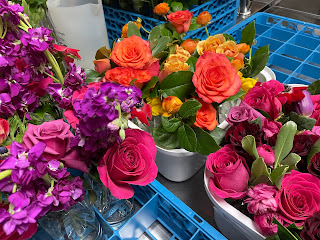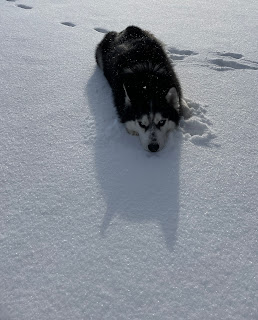When I sat down to write this post, I realized I had a lot to say. So hold on to your bootstraps! I am blessed to watch young writers develop their craft because I teach a senior creative writing seminar at my university. This experience has led me to think extensively about what young writers need to learn.
Some of the students have been writing for years: they've shared their work since high school, published poems and stories, and won awards. Others are brand new to sharing their writing with others and honing their craft. It's a lively environment, bubbling with talent and new ideas. And I am grateful to be a part of their journey. As we all evolve as writers, I have learned a few things about the process.
Hone Your Craft
If you haven't seen Pablo Picasso's early work, you need to do this right now: https://mymodernmet.com/picasso-early-work/. You can't skip working on your craft and understanding the fundamentals and technical aspects.
In my seminar, there are common technical elements the newer writers are still learning: paragraphing, punctuation for quotations, deleting filter words, and moving from telling to showing, for example. Info-dumping, effective first chapters, and deeper pov are elements all of them are still developing. There are any number of craft books to help you work on these skills. Sharing your work with your peers is also a great way to learn from others.
After that essential piece of advice (which includes the important reminder to read, read, read), the biggest piece of wisdom I share with my students is to find your voice.
Easier said than done.
We are all influenced by the many books and stories we're read - and reading a lot is crucial to becoming a great writer. But it's more than imitating or synthesizing the stories we've imbibed. We have to embrace our individual perspective of the world. And we have to let go of the negative voices in our heads and listen to ourselves.
Embrace your Unique Perspective
Embracing our quirky individuality is a courageous act. Social media and consumer capitalism work on us every day feeding us messages to conform to society's values: watch this tv show, buy this product, do this thing everyone else is doing on TikTok, you are never enough. How do we resist these forces if we can't hide in a hole by ourselves with on wifi?
Turn off your phone and tv. Think about your unique experiences and interests. Consider your learning style and how you interact with the world. Lean into that.
- Are you a cinematic writer who sees landscapes and colours first?
- Are you more of a director who can visualize dialogue and character movements?
- Do you feel everything intensely and write emotion-driven scenes?
- Do you value the pov of the underdog, or the villain, or the racialized characters?
- Do you see some injustices in the world that you'd like to change?
- What are the common themes in your writing?
One of my students was worried that her stories were too violent. But an underlying theme of her writing was telling stories about gender-based oppression from the survivor's point of view (and sometimes the survivors got justice or revenge). We know (cue the MeToo hashtag) that these stories are too often covered up or ignored. By bringing the subject to light, this writer showed us violence for a reason: to affirm the fictional experiences of her heroines. Social media or naysayers might say it's too violent. But tell that to the many, many survivors of gender-based violence and oppression who've been told they're wrong or they need to keep silent.
This writer's courage to delve into difficult topics helps to challenge social norms and strives to make the world a better place. We need that.
Let Go and Listen
Your inner voice--your connection to the universe--is somewhere inside you. Maybe it's hiding or getting drowned out by all those social media and consumer capitalist messages, things your teachers and family told you, peer criticisms and bullies' words and actions, and all the other stuff that can hold us back and tell us our voice--our craft, our gift, our unique pov, the stuff that makes you an original--isn't good enough. My writer friend calls these the brain gremlins and they can be fierce! They are noisy. They can overpower the little voice inside you and make you doubt it's even there.
So how do we find it and listen to it? We need sensitive artist types to tell their stories and share their values. Empathy and humanity are key beliefs we share and transmit in our work. But we can often feel like they are being targeted and we're living in Octavia Butler's Parable of the Sower (oof, I just looked it up and the novel is set in 2024! Please, for the love of the goddess, will someone make it into a tv show! It's the Handmaid's Tale of the moment!)
There are not shortcuts to finding your voice. For me, it's a combination of lots of writing practice, a heap of therapy, and a good helping of my writers' group's support and encouragement. It boils down, in my mind, to believing in yourself and tuning into the experiences, values, and unique perspective you have, then channeling that into your writing.
The medieval Christian mystics had a practice of self-annihilation, where they tried to rid themselves of all the external noise and devote themselves solely to the will of God. I see writing as a secular or agnostic form of this practice: you need to have faith in yourself and in the creative process, and to do this, you need to let go of all the noise and doubts and gremlins that try and separate you from this faith. Write from your heart, from your soul, and you will never go wrong.
Some of you might be wondering where the writing to market argument fits into this philosophy. I think you still can write to market while being true to yourself. But that is another story from the riverbank...






















